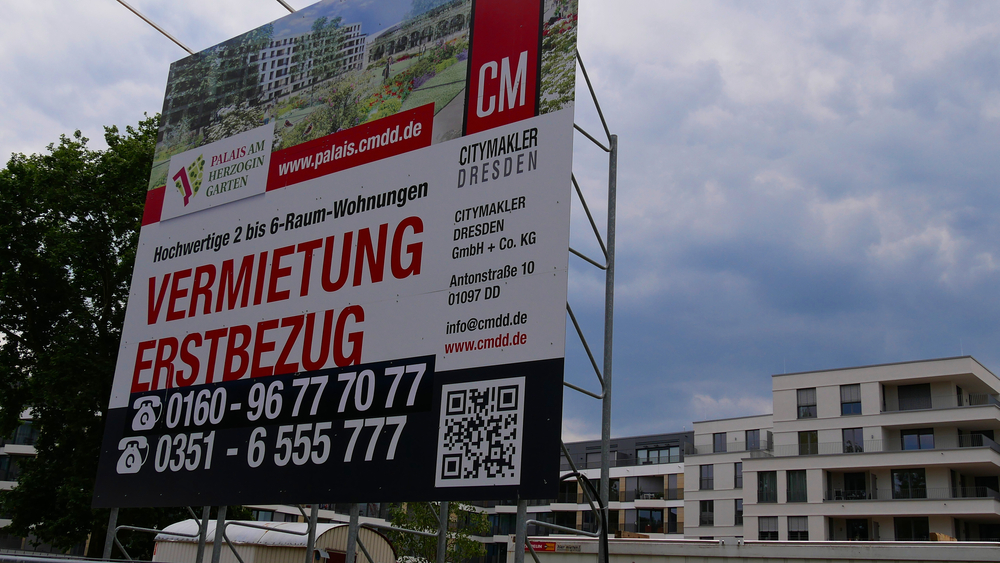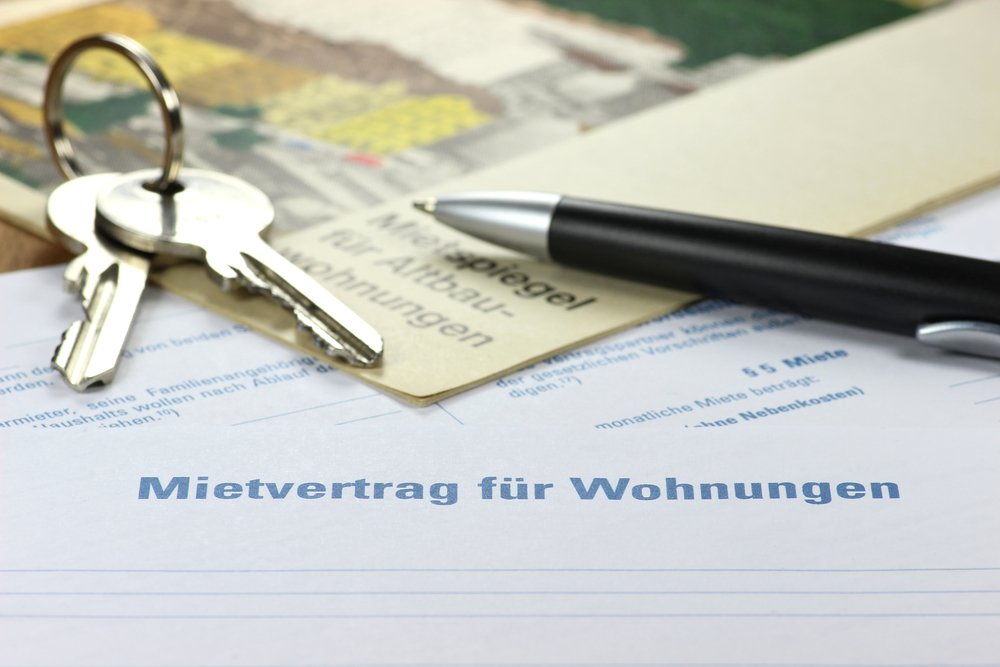Real Estate: Country Rental Fact Sheet
Welcome to Germany!
Germany is seeing increasing competition for rentals as well as rising rates, particularly within its large metropolitan areas. Apartments are by far the most common type of housing available, found concentrated in the country’s urban neighborhoods. Rentals in the city centers are some of the most sought after and, therefore, also the most expensive. Those looking for more room and privacy as well as a quieter atmosphere will want to look for housing in the suburbs, where rates tend to be more affordable. Property sizes are noted in square meters and described by the number of rooms, as opposed to bedrooms. Rental rates range from reasonable in cities such as Hannover and Düsseldorf to costly in Frankfurt and Munich, two of the country’s most expensive places to live. The most convenient way to secure a rental in Germany is to seek out a translator or German real estate agent. Landlords often advertise directly in newspapers and online to avoid any agent fees, and most ads are in German. Unless you have a strong command of German, seek a translator to help in both finding housing as well as reading and understanding the lease.
Types of Rental Properties
- Apartments make up the majority of housing in Germany, often in multi-story buildings. Units usually include a combined kitchen and living area, along with bedrooms. Rooms tend to run on the small side, and two-bedroom apartments are commonly under 65 square meters (700 square feet). Some apartments have balconies or access to rooftop gardens and newer apartment developments are more likely to provide residents with access to common areas such as a gym or laundry facilities. Sub-letting, which is legal in Germany, may be considered for short-term assignments and found through social and business contacts.
- Single-family houses are desirable for offering more space and privacy. Quality is widely varied throughout Germany, ranging from old historic homes to new builds with modern conveniences.
Expat Cities
Some of the top places for expats to live in Germany include Berlin, Düsseldorf, Frankfurt, Hamburg, and Munich. The central business districts and downtowns of these metropolises are popular places to reside for those looking to be in the middle of all the hustle and bustle. Those looking for a bit quieter atmosphere, are sure to find residential neighborhoods scattered throughout the city as well as on the fringes, where rates are more affordable. In addition, the suburbs offer more spacious dwellings including houses.
How to Find a Rental
Real estate companies handling rentals are an efficient way to find housing in Germany. Th service comes at a high cost, however, legally capped at two months’ rent plus 19 percent value-added tax (VAT). Renters should understand that this fee is in addition to the security deposit required to secure the rental. Most companies have English-speaking agents though a good grasp of German always helps. National and local newspapers have apartment listings, most directly from landlords. In addition, rentals are commonly advertised online; some of the most popular online portals for rental properties include:
|
|
Rental Rates and Fees
Rentals in Germany are typically advertised by the area per square meter with rates determined by the amount of space. Therefore, many ads refer to the area of the rental as opposed to stating the number of rooms. Below is a table of average monthly rental rates for apartments by size and location.
| In City Center | Average Monthly Rate | Range | Outside City Center | Average Monthly Rate | Range |
| 1-bedroom | €927 | €700–1,300 | 1-bedroom | €667 | €500–910 |
| 3-bedroom | €1,817 | €1,500–2,500 | 3-bedroom | €1,239 | €1,000–1,600 |
- Prospective renters should note that in Germany, apartments are advertised by the number of rooms, not the number of bedrooms. Bathrooms and kitchens are not counted as rooms; therefore, a two-room apartment has one bedroom and one combined living-dining area. Half rooms are those less than 10 square meters (about 108 square feet).
- Any fees for using the services of a real estate agency are paid by the landlord.
- New tenants need to register their residence within two weeks of moving in. This is done by appointment at the Citizens Registration Office where you must provide photo identification such as a passport, a registration form, rental agreement, confirmation of move-in from landlord, and, if applicable, a marriage certificate and any children’s birth certificates.
Lease Terms
Restrictions
Foreign renters must provide photo identification such as a passport, three recent pay stubs, three months’ bank statements, application form, and credit report (referred to as a Schufa for the agency that provides them). New arrivals to Germany won’t likely have a credit report, which is why bank statements that prove income and bill-paying history are required.
Duration
The most common lease term in a German tenancy agreement is one or two years with many becoming open-ended after that time. Tenants must provide at least three months’ notice if intending to vacate the property. Short-term leases of less than 12 months are most common for furnished rentals, which are available for higher rates.
Deposits
A security deposit (kaution) equal to three times the gross monthly rent (two months’ rent as deposit plus one month of rent in advance) is typically required. Landlords are legally required to keep this money in a bank account called a kautionskonto, with any accrued interest returned to the tenant when the lease agreement ends.
Pets
Most short-term and serviced apartments do not allow pets. However, even if a building has a no-pets policy, landlords may be willing to negotiate on a case-by-case basis. Germany has banned certain dog breeds considered dangerous, they include American Staffordshire terrier, bull terrier, pit bull terrier, and Staffordshire bull terrier, as well as any crossbreeds of these.
Legal Issues
- Timely payment of rent is essential, and renters who are in arrears for two months’ rent can have their contract terminated by the landlord. When a tenant receives an eviction notice through the mail, they have two months from the time the letter arrives to vacate the premises.
Amenities
Furnished vs. Unfurnished
Apartments are generally rented unfurnished with only the essential appliances such as a hot water heater, furnace, refrigerator, and stove. Renters should be aware that unfurnished can mean there are no appliances, carpet, or even light fixtures, all of which would have to be removed when the tenant leaves, returning the rental to its previously unfurnished state. If you paint the walls, be prepared to repaint to the original color upon departure or the landlord may deduct a fee from the deposit. Fully furnished rentals, which are more difficult to find, are most often for short term and very expensive.
Parking
Public transportation is extensive, convenient, and affordable in Germany, so it’s not necessary to own a car. If parking is available at your rental property, it is either included in the cost of rent or handled under a separate monthly lease. Free parking in the area may also be an option.
Utilities
Most German rentals include electricity, heat, water, and solid waste disposal in the cost of rent. If not, this is referred to in German as kaltmiete (cold rent), while rent with utilities included is called warmmiete. Be sure to clarify exactly which utilities are covered in the rent. Any services not included as part of the rent must be arranged by the tenant.
Telephone Landline
In Germany, 1&1 (https://dsl.1und1.de) and O2 (www.o2online.de) are the largest telephone landline, or fixed line, providers. Contracts are generally for 12 months, while some internet providers offer a combination package that includes landlines for either a small extra fee or no additional fee. Setting up an account will require proof of identification, a registration certificate, and German bank account.
Internet and Bundled Services
Popular internet service providers include 1&1 (https://dsl.1und1.de), O2 (www.o2online.de), Easy (www.eazy.de), and M-Net (www.m-net.de). Fixed-rate packages for bundling telephone landline, internet, and mobile phone services are available.
Electricity
The main energy providers in Germany are RWE (www.rwe.com), E.ON (www.eon.com), EnBW (www.enbw.com), and Vattenfall (www.vattenfall.com). Most of these suppliers provide green energy from renewable sources. Electricity service is usually bundled with gas, and the two will most likely be included in your rent. If not, you can activate your electricity online or in person and will be required to provide German bank account information. Bills are paid monthly or quarterly.
The standard electrical voltage in Germany is 230 volts AC and 50 hertz, using the two-pinned type C Europlug and type F Schuko plug. Most European devices will work without any additional equipment. British and Irish appliances will require plug adapters. American devices, which are designed for 110- and 120-volt electricity, require voltage converters or transformers and plug adapters.
Water and Sewage
Tap water in Germany is high quality, and water is the country’s most controlled food/beverage product. Water and sewage services are provided by the cities, districts, and independent companies. Services are typically billed together on a quarterly basis. Customers can make payments online if the cost is not included as part of their rent.
Gas
As with electricity, natural gas for cooking and/or heating is most likely to be included in the cost of rent, though tenants should always clarify this with the landlord or rental agent. The main energy providers in Germany are RWE (www.rwe.com), E.ON (www.eon.com), EnBW (www.enbw.com), and Vattenfall (www.vattenfall.com). If service is not handled by the landlord, you can activate your gas online or in person and will be required to provide German bank account information. Bills are paid monthly or quarterly.
Waste and Recycling
Solid waste collection and recycling services are usually included in the rent. Landlords should provide separate containers for plastic, paper, biodegradables, and other items. Designated days for weekly collection vary by location. There also are public collection points for glass bottles, while those with deposits are returned to supermarkets. Ask the real estate agent or landlord any questions regarding pick up schedules and how costs are handled.
Making Payments
Utilities that are not included in the cost of rent can easily be paid through the service provider, with internet banking and direct debit being the most convenient options.
FAQs
Can I negotiate my lease?
Potential tenants may be able to negotiate certain terms of the lease such as the monthly rate, duration, and any possible fees to have a pet in the residence. In addition, when renting an unfurnished apartment or partially furnished apartment, the requirement for additional furniture, appliances, or fittings, can sometimes be negotiated.
Should I have renter’s insurance?
Renter’s insurance, or liability insurance, is advisable and quite affordable, though it is not legally required in Germany. Some insurance companies require a German bank account. Not all damages are insured, however, and distinctions are made between stationary fixtures such as flooring and sinks verses moveable fixtures; be sure to clarify what is covered in your policy.
Article written for World Trade Press by Felicia Topp and Brielle Burt.
Copyright © 1993—2025 World Trade Press. All rights reserved.

 Germany
Germany 

